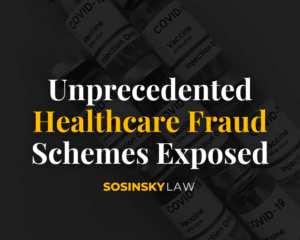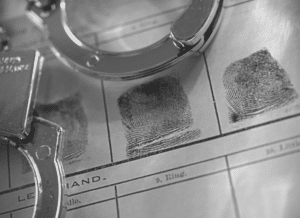NYC Embezzlement Lawyer
Embezzlement Lawyer New York City Residents Trust
Embezzlement is one of the most common types of white collar crimes that New York prosecutors go after. Embezzlement is a type of financial fraud and involves the accused withholding money or other assets from the victim as a means of theft. The penalties for embezzlement can be very severe in New York and can depend upon factors like the amount at stake and also the nature of the relationship between the defendant and the victim.
Like other white collar crimes, the facts and circumstances of an embezzlement case can be very complicated and you will want to speak with a New York criminal lawyer to learn your defenses and next steps. You can face significant prison time for embezzlement and you will want to learn your options and defenses as soon as possible.
Embezzlement Defined
Embezzlement is generally defined as the conversion or theft of assets that have been legally trusted by the defendant. For example, a client may leave his money with a financial advisor with the good faith understanding that the financial professional will invest the funds for the client’s own use. If the financial advisor then uses the money for his or her own purpose, without the client’s knowledge or consent, the financial advisor is now engaging in embezzlement.
There is a wide array of types of embezzlement. In many cases, the accused may engage in a pattern of embezzling relatively small sums over a long period of time. Generally, this is only discovered after a large enough sum has been stolen or if an audit has been performed. In other cases, the embezzler may steal a large sum outright. To prove embezzlement, prosecutors generally have to show beyond a reasonable doubt the following elements:
Fraud
To constitute embezzlement, the actor typically must engage in fraud. This means that the individual must willfully engage in the conduct and intend to defraud another. A simple mistake or reasonable error may not be enough to constitute embezzlement.
Conversion
Prosecutors must show that the actor converted the property of another. This means that the embezzler interfered with the property of another to the extent that the rightful owner could no longer control or use the assets. To find conversion, prosecutors must show that the interference with the property owner’s use is substantial. For example, the placement of another’s assets in a separate account may not constitute conversion if the assets may easily be placed back into the rightful account.
Lawful Possession
What distinguishes embezzlement from other theft crimes is that the embezzler once had a lawful right to the property. Usually, the victim of the crime gives the embezzler possession of the property for some purpose. Then, the embezzler uses the property for another unauthorized purpose.
It is important to note that embezzlement is distinct from other crimes like theft and stealing given that the perpetrator of embezzlement does have lawful possession of the property at some point. With theft or stealing, the perpetrator typically takes something that does belong to them and transfers that property to his or her own for the thief’s own use. However, with embezzlement, the actor is entrusted with the property and then breaches that trust by using the property for some unauthorized purpose.

Types of Embezzlement
There are many different ways that someone may engage in embezzlement. However, each type of embezzlement may carry its own set of specific penalties if convicted. Working with a qualified NYC embezzlement attorney is the best way to safeguard your freedom and help you obtain the best possible outcome in your case. Some common ways include:
Falsification of Records
Individuals accused of embezzlement often create false business records and paperwork to account for the funds to the client when, in fact, they have diverted the funds elsewhere. For example, if someone provided money to his or her lawyer to hold in trust for a family member, the lawyer may give false paperwork showing that the money was deposited in an investment account or stock market brokerage account. However, the embezzler may actually use the money for his own investments or simply to spend on personal possessions.
Skimming
Skimming is a particularly difficult form of embezzlement to uncover. Skimming typically involves the conversion of small amounts of money over a long period of time. Looking at each individual transaction, the number of missing funds may look like a rounding error. However, over the course of a long period of time, the amount skimmed may add up and be quite substantial. Usually, an audit may reveal skimming only after it has gone on for some period of time.
False Accounts
Instead of creating false records, the embezzler may sometimes simply create false accounts. In this case, the victim will know where the money is going. However, the victim will have no idea that the account is illegitimate.
Ponzi Schemes
Elaborate Ponzi schemes like the one devised by Bernie Madoff are complex forms of embezzlement. The orchestrator of the scheme receives investments from his clients. The embezzler will then use a portion of the sum for his or her own use while using the other funds to pay off other investors in the form of returns. Eventually, a Ponzi scheme will topple on its own weight as there is not enough money to go around, especially when investors start defunding their accounts.
Penalties for Embezzlement in New York
Embezzlement, or grand larceny, is classified as a white collar crime due to its nonviolent nature and relation to money. Depending on the amount of money involved in the case, there are four degrees of punishment under New York law for this offense. Each degree carries distinct consequences that become increasingly severe with greater amounts stolen; thus it is essential to understand these penalties before taking any action.
- 4th Degree Grand Larceny – Applies when the property involved is valued between $1,000 and $3,000. This is a Class E felony punishable by up to four years in prison.
- 3rd Degree Grand Larceny – Applies when the property involved is valued between $3,000 and $50,000. This is a Class D felony punishable by up to seven years in prison.
- 2nd Degree Grand Larceny – Applies when the property involved is valued at over $50,000 but less than $1,000,000. This is a Class C felony punishable by up to 15 years in prison.
- 1st Degree Grand Larceny – Applies when the property involved is valued at over $1,000,000. This is a Class B felony punishable by up to 25 years in prison.
Frequently Asked Questions
Is There A Statute Of Limitations For Embezzlement?
Absolutely. The statute of limitations for a crime related to Embezzlement varies between two and five years, depending on the details of the case. In most instances, it is usually 5 years since most offenses connected to Embezzlement involve Grand Larceny with thefts above $1,000.00. It’s important to note that when determining if the time limit has been exceeded or not doesn’t start from the date you were first accused but rather when your criminal activity ended – this could be after any ongoing action or even just simply stopping further embezzling activities at any point in time prior thereto.
What’s The Difference Between Embezzlement And Theft?
In New York, embezzlement is classified as grand larceny under the law and differs from simple theft in a variety of ways. Embezzlement occurs when someone utilizes their relationship with another to unlawfully steal money or property. On the other hand, simple theft involves intentionally taking something that isn’t yours without permission – for instance, if you were to snatch somebody else’s wallet out of their bag.
Contact Our NYC Embezzlement Attorney Today
If you have been charged with embezzlement or other white collar crimes in New York, you will want to work with an experienced attorney. Contrary to popular opinion, someone convicted of a white collar crime in New York does face very serious criminal penalties including serving hard time in the penitentiary. As a result, you will want experienced New York embezzlement attorney Frederick L. Sosinsky to represent your case. To schedule a free consultation and to discuss the specifics of your case, call us at (212) 285-2270.
SOS? CONTACT SOSINSKY
NYC Criminal Defense

Unprecedented Healthcare Fraud Schemes Exposed
Unprecedented Healthcare Fraud Schemes Exposed: A Glimpse into the Recent DOJ Crackdown In a groundbreaking move, the Department of Justice has unveiled criminal charges against

Conspiracy Charges in NY
NYC Conspiracy Crime Lawyer Conspiracy charges in NY are valid when two or more parties make a clear agreement to engage in criminal activity. Under
